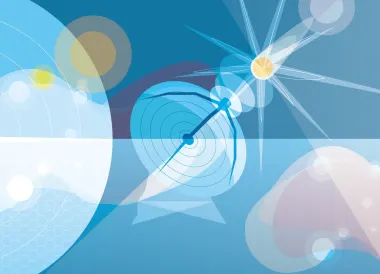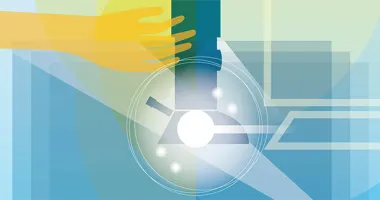Journals in Physics and Astronomy
Elsevier is home to many highly respected journals in the field, including prestigious society titles. We are proud to play an integral part in the Physics and Astronomy community and to participate in the advancement of the field. All our journals are available online via ScienceDirect.com opens in new tab/window, the essential information resource for over 15 million scientists worldwide.
Cassyni and Elsevier Partner to Launch Next-Generation Seminar Series for Journals
Cassyni has partnered with Elsevier to launch virtual seminar series across the Elsevier Physics journal portfolio, providing an innovative new way to engage with authors and readers.

Seminars will be associated with recent journal papers, selected by editors as being particularly innovative and impactful. The live events will be open to researchers from all around the world, with an opportunity to participate in Q&A after each event. Recordings, augmented with AI powered video search, will then be hosted on Cassyni and assigned a DOI, making them a citable part of the academic ecosystem.
Elsevier Physics Seminar Collection
Seminars in the Elsevier physics collection opens in new tab/window are associated with recent journal papers, selected by editors as being particularly innovative and impactful. Live seminars are open to researchers from all around the world.
Journal authors resources
Every year, we accept and publish more than 470,000 journal articles. Publishing in an Elsevier journal starts with finding the right journal for your paper. If you already know the journal to which you want to submit, you can enter the title directly in the find a journal search box. Alternatively, you can match the abstract opens in new tab/window of your article to a journal.
Open Science
Open access options
Open access lies at the core of Elsevier’s publishing mission – in fact, today, almost all of our journals offer open access options. That means finding the right open access home for your research is easy. Whatever route you choose, publishing with Elsevier means your work benefits from the input of expert editors and reviewers. And if you publish gold open access, it is immediately and permanently free for everyone to read and download from ScienceDirect. Our gold OA titles also feature in major indexes and databases.
Open access for Physics journals: What are your options?
There are many options within Elsevier Physics to publish your next article open access. Most of our journals are either full open access or offer an open access option.
SCOAP3 extended until 2024
The SCOAP3 Collaboration announces today that CERN, the European Organization for Nuclear Research, as ‘host organization’ of SCOAP3 has signed contracts with 11 leading commercial and society publishers to extend this large-scale Open Access initiative for a 3rd three-year term, covering the years 2020-2022. With the conclusion of the formal contracts, SCOAP3 will continue supporting authors worldwide to publish their research Open Access at no cost or burden.

The same eleven journals will participate in this three-year extension of the initiative, of which eight are published by learned societies. All articles will be published Open Access in perpetuity, under Creative Commons CC-BY licenses at no direct cost to any authors. In addition to availability on the publishers’ platforms, articles will be also available on the SCOAP3 Repository, enabling partners to build value-added services. SCOAP3 is a partnership of 3,000 libraries, funding agencies and research organizations from 43 countries and 3 intergovernmental organizations. In cooperation with leading scientific publishers and learned societies, SCOAP3 has supported the transition to Open Access of key journals in the field of High-Energy Physics as of 2014 and has served as inspiration for several other Open Access initiatives around the world. During the almost six years of SCOAP3 operation, 20,000 scientists from 120 countries have benefited from the opportunity to publish more than 30,000 Open Access articles free of charge. View the news online opens in new tab/window


